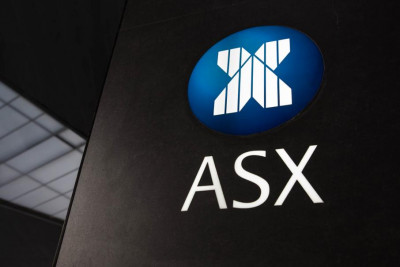Weekly market update - 8th of August 2019
Written and accurate as at: Aug 08, 2019 Current Stats & Facts

The local marker fell slightly last week. The iron ore price continued to retrace from recent highs to end the week below US$110 a tonne. This weighed on Resources (-2.6%) with Fortescue Metals (FMG, -7.8%) among the hardest hit in the ASX 100. BHP (BHP, -5.1%) and Rio Tinto (RIO, -3.6%) also wore some pain. The sudden escalation in the Sino-American trade dispute prompted further weakness in iron ore prices and stocks yesterday, as the part of the Australian economy most immediately susceptible to a deterioration in Chinese demand. The sector looks set for increased volatility, although we remain mindful that the Chinese government does retain the ability to launch further stimulus in response to a slowdown, which can swiftly change sentiment on the mining sector.
There was relatively little stock-specific news flow given earnings season starts in earnest this week. CYB Group (CYB) fell -20.3% for the week following its quarterly update, which disappointed on margins as competitive pressure remains strong. Management have pointed to the fact that front book pricing has started to improve (ie their most recent loans). That said, the back book remains a headwind for margins.
Adelaide Brighton (ABC, -21.2%) downgraded its full year guidance. In doing so it confirmed a trend first flagged by CIMIC several weeks ago that the pipeline of infrastructure work has proved slower than expected. Several of the domestic construction-related names have had bounces post-election, however there are signs now that the underlying environment has not improved. Boral (BLD, -6.8%) fell in sympathy.
Ag stock Nufarm (NUF, +0.6%) also downgraded if FY19 expectations, while also announcing that major shareholder Sumitomo Chemicals had shored up the balance sheet via a $97.5m preference placement.
Gold miners continued their strong run. Newcrest (NCM, +8.9%) was the best performing stock in the ASX100, while Evolution Mining (EVN, +5.3%)was not far behind. Otherwise, it was the defensive bond sensitives such as Sydney Airport (SYD, +5.6%), Transurban (TCL, +4.2%) and the REITs (+1.8%) which did well as 10 year government bond yields fell from 2.08% to 1.86% in the US – and from 1.23% to 1.09% in Australia.
A seeming breakdown in trade negotiations, imposition of further tariffs, RMB depreciation and the announcement that Chinese state-owned companies will no longer buy American agricultural imports has dialed up volatility this week.
Recent falls have been led by the miners, as mentioned above. However it was also interesting to note that several of the higher-rated growth names also underperformed, despite a fall in bond yields. This is likely a reflection of recent momentum and weight of money, with investors looking to book some profit in a bout of risk aversion – particularly given the market’s strong run over the last six months. It is a reminder that growth names are not a one-way bet even if bond yields remains low – if those yields are a reflection of deteriorating economic fundamentals, then investors will probably not want as much exposure to the beta leverage that the growth names provide. It is also a reminder of the lack of valuation support that exists in many of these stocks.
In the near term the mining sector is likely to see further volatility. While the potential for Chinese stimulus remains, the near-term focus is likely to be the risk-off trade. The oil names, too, may be volatile given the implications for global growth and the reports that China is considering importing Iranian oil as an additional response to the breakdown in talks. Gold stocks are likely to continue their recent outperformance in a risk-off environment, while investors are also likely to gravitate to the defensiveness of infrastructure and REITs.
An economic downturn is in neither side’s interest; the issue for both Presidents is how to back-track from the current point without losing too much face. Near-term rhetoric could very well escalate before things improve. While the path is unclear, we remain mindful that sentiment can shift quickly, as we saw with regard to the views on US monetary policy late last year.










